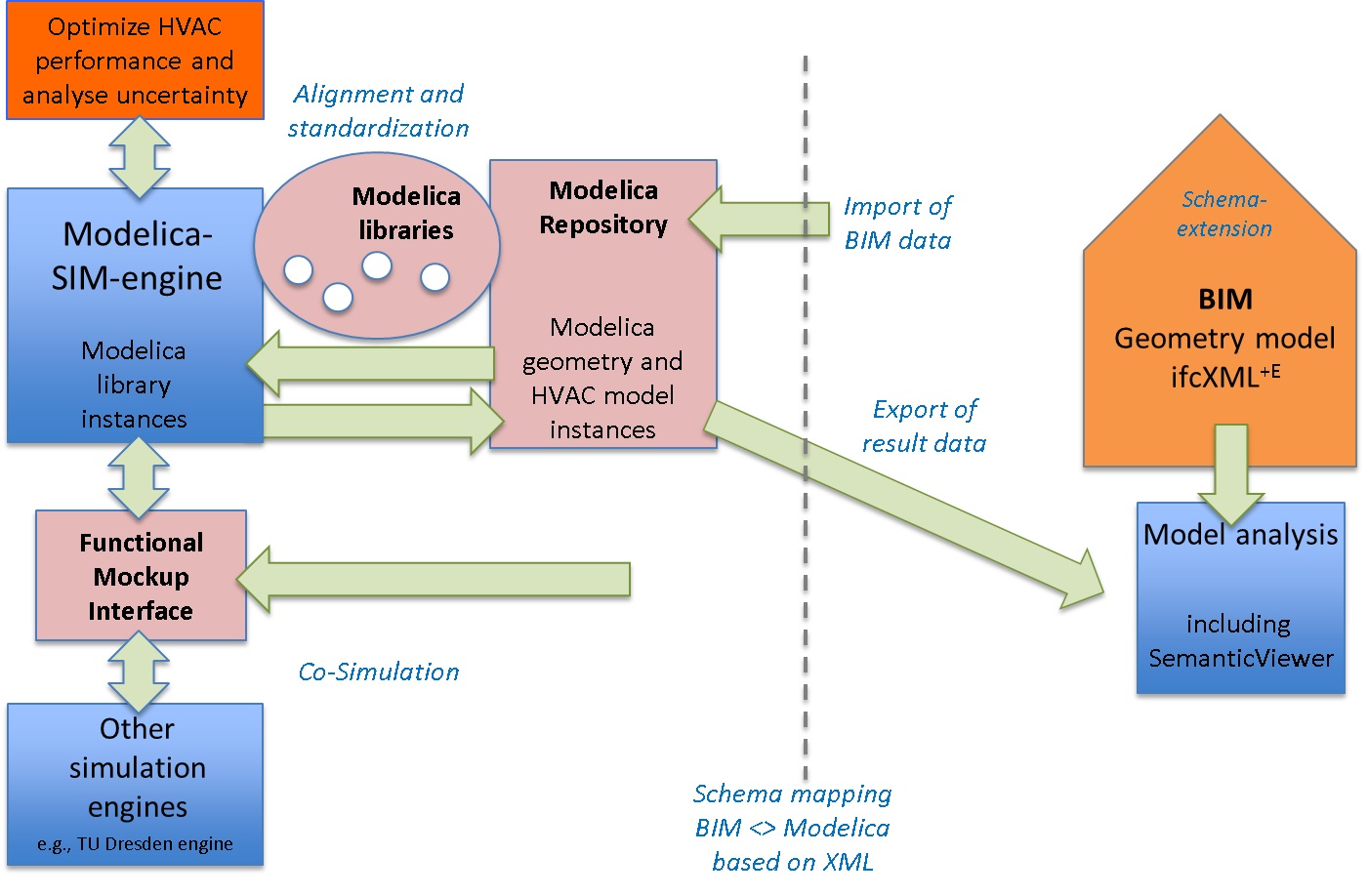| Duration: | December 2013 - November 2016 |
| Contracting Authority/ Sponsors: | German Federal Ministry for Economic Affairs and Energy (BMWi) |
| Project Partners: | Chair for Energy-Efficient Construction E3D, RWTH Aachen (coordination); Energy Efficient Buildings and Indoor Climate EBC, E.ON ERC, RWTH Aachen; Chair for Supply Planning and Supply Technology, UDK Berlin; Building Lifecycle Management, Karlsruhe Institute for Technology (KIT); Fraunhofer Institute for Building Physics IBP, Valley; AEC3 Deutschland GmbH; Maile Consulting |
| Project Focus: |
EnEff-BIM – Planning and Optimization of Energy Efficient Buildings Using Building Information Models (BIM)

In the collaborative EnEff-BIM project, information technology methods for planning, design, and operation of energy-efficient new and existing constructions are developed, tested, and made available to expert planners. Modelling, simulation, and operating optimization is based on open digital building information models (BIM). Based on a digital 3D planning model, a continuous data exchange should be achieved. The objective of the project is the development of an open interface for the automatic generation of Modelica sub-models based on BIM data. The Modelica interface to be developed also offers a basis for life cycle cost analyses, energy performance verification, and sustainability certification of buildings.
Numerical simulation tools are often used during planning, design, commissioning, and operating optimization of energy-efficient buildings to analyze the dynamic interaction of active and passive components. These enable, e.g., the prediction of operative room temperatures, the consideration of user behavior or weather forecasts, control strategy testing in building operational management, or hardware component testing in a virtual environment (hardware-in-the-loop simulation). This project is purposefully based on the object-oriented Modelica modeling approach, in which already available model libraries can be adjusted, exchanged, and reused. The objective is to facilitate reuse of models across different planning phases and areas of applications. For this purpose, an open interface between Modelica and BIM models is developed, as well as interfaces to other simulation methods used through co-simulation via the open Functional Mockup Interface (FMI) standard. Furthermore, practical uncertainty and sensitivity analysis methods are developed for building simulations to provide them for operating optimization. In order to bundle resources, a connection to the international ECBCS Annex 60 project “Modelica-based next-generation tools for new and existing buildings and communities” is planned. A practical demonstration of the methods delivers feedback for the development process.